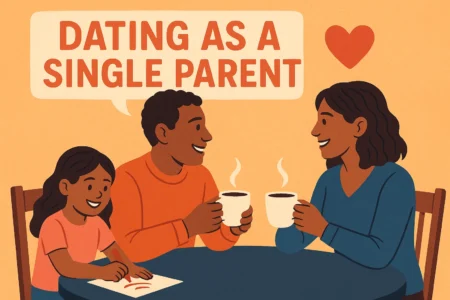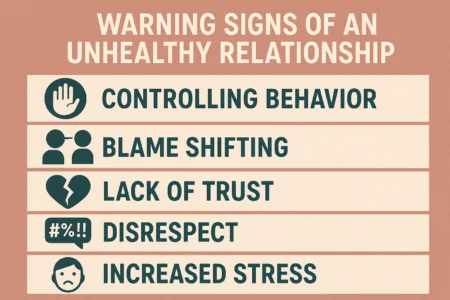Isn’t it the best feeling, though? Like, you’re just talking to someone, and out of the blue they ask about that random, tiny thing you mentioned last week? Your brain just goes “Wait, you remembered that?!” Makes you feel… I dunno, kinda warm. That simple act of remembering, of making a connection back, is surprisingly powerful. This is all about Using callbacks to previous conversations to show attentiveness.
It’s not about having a superhuman memory or keeping detailed notes on everyone you talk to (though, no judgment if you do!). It’s more about the feeling it creates. When someone references a past conversation, it signals, “I was present with you then, I heard what you said, and it registered.” In a world where everyone feels distracted and communication can feel surface-level, that feeling of being truly heard and remembered? That’s gold.
I remember once mentioning offhand to a friend about a particular type of weird indie music I liked. Months later, she sent me a link to a new band saying, “This made me think of that band you told me about ages ago!” It was such a small thing, but it honestly made my day. It showed she hadn’t just been nodding along; she’d actually heard me. That’s the power of a good callback.
Why Callbacks Feel So Good (Hint: It’s Not Rocket Science)
Guess it just hits that spot… everyone wants to feel like someone’s actually listening, right? Like you’re not just talking into the void? When someone remembers a detail, it shows they were paying attention beyond just waiting for their turn to talk.
- It Shows You Care: Taking the mental energy to store and recall a detail about someone else signals investment. It says, “You’re important enough for me to remember this.”
- Builds Connection Faster: It creates little threads between conversations, weaving a stronger connection over time. You’re not starting from scratch every time; you’re building a shared history.
- Deepens the Conversation: You can actually build on past discussions. “Last time we talked, you were saying X… how has that evolved?” allows for richer dialogue.
It just makes interactions feel less transactional and more genuinely relational.
Using callbacks to previous conversations to show attentiveness
So, how do we actually make this happen naturally, without it feeling forced or like we’re studying for a test on someone’s life? It starts, obviously, with actually paying attention.
1. The Foundation: Tune In!
This seems blindingly obvious, but you can’t call back to something if you weren’t truly listening when it was first said. In our multi-tasking, notification-filled lives, really being present in a conversation takes conscious effort. Put the phone down (mentally and physically!), make eye contact, focus on what they’re actually saying. My brain sometimes feels like it has 50 tabs open, I admit, so I really have to consciously try to minimize distractions and just listen.
2. Spotting the Callback Gold Nuggets:
What kind of details make for good, natural callbacks later? Usually things that hold some significance for the other person, even if small.
- Upcoming Events/Plans: Did they mention a job interview? A doctor’s visit? A weekend trip? A presentation? Asking “Hey, how did [that specific thing] go?” is a classic, effective callback.
- Recommendations/Interests: Did they rave about a book, movie, restaurant, or podcast? Mentioning you tried it (and what you thought), or even just remembering they liked it (“Saw they’re making a sequel to that movie you love!”) shows you noted their taste.
- Personal Details (Use Sensitivity): Did they share something about their family, pets, a project they’re working on, a challenge they were facing? “How’s your sister feeling after her trip?” or “Did you ever figure out that tricky [work problem]?” Be mindful here – don’t bring up deeply personal or painful things casually unless you’re sure it’s appropriate.
- Shared Jokes/Moments: And it’s funny how bringing up some stupid inside joke from last time can just instantly make you both laugh again, gets things feeling comfortable right away.
Okay, total confession: sometimes, if someone tells me something I really don’t want to forget – like their pet’s weird name or something – I might sneakily type a word into my phone later. Feels super dorky, but my brain’s like a sieve sometimes! My memory just isn’t perfect.
3. Weaving It In Smoothly (The Artful Part)
Okay, you remembered the detail. How do you bring it up without sounding like, “My notes say you mentioned your cat Fluffy last Tuesday”?
- Natural Lead-Ins: Connect it to the current topic if possible. “Oh, speaking of travel, that reminds me – how was your trip to [place]?” or “That sounds stressful! Is it anything like that [past challenge] you mentioned you dealt with before?”
- Simple & Direct: Often, a straightforward approach is best. “Hey, I was just thinking, how did that presentation end up going?” or “I remembered you said you were looking for good hiking trails – did you find any?”
- Keep the Tone Casual & Warm: You’re not testing their memory or putting them on the spot. Just sound genuinely curious and friendly. Like you just thought of it (even if you made a note!).
4. The Between-Chat Callback:
Text messages, emails, or DMs are great for this too. Sending that article link (“Saw this and thought of our chat about X!”), asking how the weekend event went, or sharing a photo of something that reminded you of them are all easy, low-pressure ways to show you’re paying attention between live conversations.
Things to Keep in Mind (To Avoid Being Weird):
- Don’t Overdo It: Constant callbacks can feel like an interrogation or like you have an unnervingly perfect memory. Sprinkle them in naturally.
- Be Genuinely Interested: Ask because you actually want to know the answer, not just to score ‘attentiveness points’. People can usually sniff out insincerity.
- It’s Okay If Your Memory Isn’t Perfect: I definitely worry sometimes if I’m remembering the detail exactly right! But honestly, even getting it slightly wrong (“Was it your aunt or your cousin visiting?”) often shows you tried to remember, and the effort is usually appreciated more than perfect recall.
- Read the Room (Always!): Be mindful of context. Don’t bring up a lighthearted callback if the current mood is somber, and maybe avoid very personal callbacks in a group setting unless appropriate.

Quick Story: The Power of Remembering Coffee
This sounds so minor, but stick with me. There was a coffee shop I used to go to occasionally. One time, I mentioned to the barista, just in passing, that I was having a rough week because my dog was sick. The next time I went in, maybe a week later, a different barista was working, but the first one was nearby.
As I ordered, the first barista called over, “Hey, how’s your dog doing? Is he feeling better?” I was honestly floored. It was such a tiny interaction the week before, but she remembered, and she cared enough to ask. It instantly made me feel like more than just a random customer; it made me feel seen. That little callback completely changed how I felt about that coffee shop.
Wrapping It Up for Using Callbacks To Conversations To Show Attentiveness
So, using callbacks to previous conversations to show attentiveness isn’t some complex communication hack. It’s really just about the fundamental human act of listening, remembering, and showing someone you care enough to connect the dots. It tells them, “What you say matters to me.” It builds trust, deepens connection, and just generally makes interactions feel warmer and more meaningful.
It all starts with being truly present when you’re talking with someone. When you genuinely listen, the opportunities to make those little connections back will often pop up naturally. And making someone feel truly heard and remembered? That’s one of the nicest feelings you can give someone.
Frequently Asked Questions
What precautions should I take to avoid seeming insincere when using callbacks?
To avoid seeming insincere, ensure your interest is genuine, sprinkle callbacks naturally without overdoing it, and always read the room to suit the context, especially with personal or sensitive topics.
How do I bring up a callback smoothly without sounding awkward?
You can bring up callbacks smoothly by using natural lead-ins related to the current topic, being direct and straightforward, and maintaining a warm, genuine tone to make the conversation flow effortlessly.
What types of details are best to recall for callbacks?
Good details to recall include upcoming events or plans, interests like books or movies, personal updates such as family or pets, and shared jokes or memorable moments that hold significance for the other person.
What are callbacks in conversations and why are they important?
Callbacks in conversations are references to earlier topics or details shared during the interaction. They are important because they demonstrate attentiveness and care, making the other person feel truly heard and valued.
How can I naturally incorporate callbacks into my conversations?
You can naturally incorporate callbacks by paying close attention to details that the other person mentions, then bringing them up later in a casual, relevant way that shows genuine interest and care.





